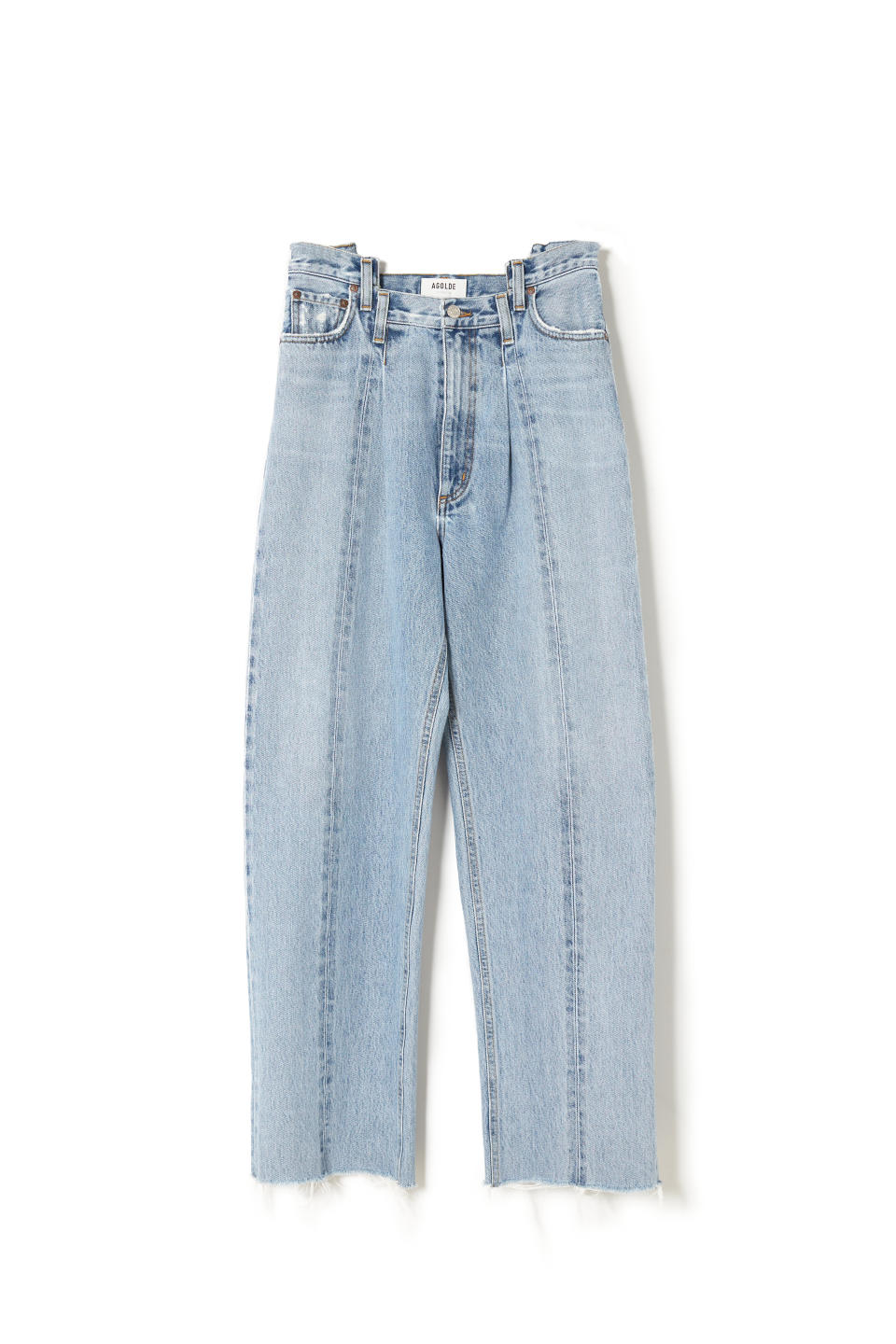Denim Industry Leads Sector With Natural, Sustainable Materials

Green jeans are high in demand for brands and consumers — and denim manufacturers are responding with fabric blends that prioritize sustainability above all else.
That’s why in denim, circularity is trending up. “Mills are looking at circularity from all angles,” Tricia Carey, director of global business development, Denim, at Lenzing, told WWD. “There are developments with fabric blends using Refibra technology and mechanically recycled cotton. The combination of both these fibers provides the softness, yarn character and durability for denim.”
More from WWD
Carey added that mills are thinking about the garment end of life by developing more fabrics that are compostable and/or biodegradable. Hemp blends, too, have been popularized of late, with Carey citing that “hemp blends are everywhere” and “what’s old is new again with advances in technology.”
Lenzing’s Tencel Modal with Indigo Color Technology developments “are coming through now after our launch in February. It is clear the level of open innovation is high with the developments in knits, wovens and laundry finishing,” Carey said.
Premium denim brands such as Agolde, part of the Citizens of Humanity group, are going all out with organic cotton for its summer lineup, including its newest style for the season, the Pieced Angle Jean. A modern take on a vintage look, its high-rise relaxed straight jean with a stepped waistband, cut-off hem and shadow back pocket detail is made with 100 percent organic cotton.

Its sister brand, Citizens of Humanity, also offers an Organic Cotton Collection, crafted from a range of lightweight fabrics that are all made with 100 percent organic cotton denim.
The brand said the collection’s special fabric features include Kitotex, a patented technology that drastically reduces the composition of water, chemicals and energy in production processes, and Indigo Juice, a dyeing technology that keeps indigo “very superficial” on the yarn, which allows for the use of a very small amount of water, chemicals and energy to wash down the dye, achieving “an authentic look with low environmental impact.”
When Indigo Juice’s and Kitotex’s powers combine, the result is savings of 15 percent for water; 33 percent for chemicals, and 25 percent for energy, compared to conventional dyeing processes.
And on the technology front, Pakistan-based Soorty, the nation’s largest vertically integrated denim company, announced its partnership this week with Green Story, a sustainable marketing platform that will provide an extensive Life Cycle Analysis of their products — and help tell the narrative behind why making a “smart” denim choice can make a massive impact, reinforcing the exponential growth of sustainability in the sector.
FOR MORE BUSINESS NEWS FROM WWD, SEE:
Outerwear Brand Nobis Launches Upcycling Campaign
The Great Outdoors Is Having a Moment in Fashion
Field Notes: Textile Chemical Use Is Getting Greener
Sign up for WWD's Newsletter. For the latest news, follow us on Twitter, Facebook, and Instagram.

